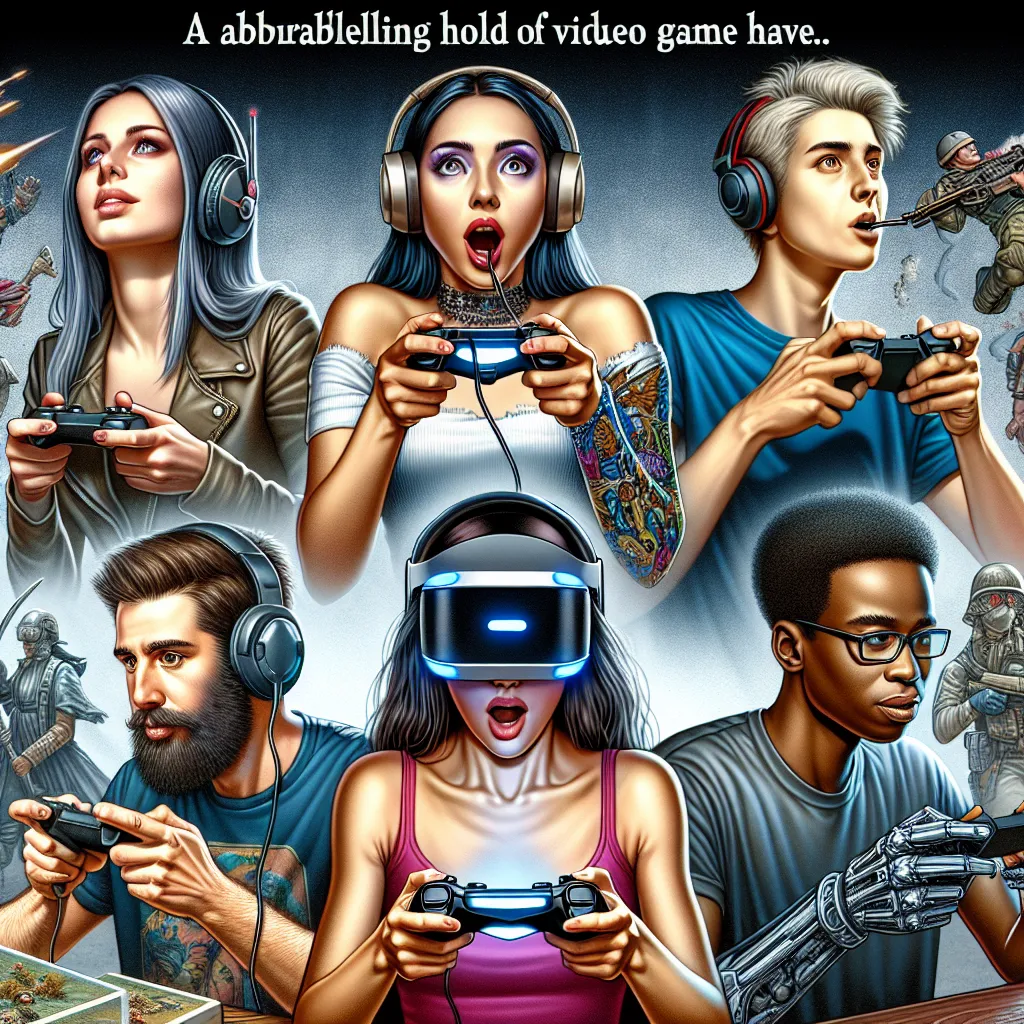The Psychological Impact of Video Games on Behavior
Video games have become an integral part of modern society, shaping the way people interact and behave. One of the most debated aspects of video games is their psychological impact on behavior. Numerous studies have been conducted to investigate the correlation between video game usage and its influence on behavior.
Research has shown that excessive use of violent video games can desensitize individuals to real-life violence and increase aggressive thoughts, feelings, and behavior. This phenomenon has raised concerns about the potential desensitization to violence and its impact on societal behavior. In addition, prolonged gaming sessions can lead to addictive behaviors, impacting social interactions and mental well-being.
However, it’s important to note that not all the psychological impacts of video games are negative. Certain games have been designed to improve cognitive functions, problem-solving skills, and strategic thinking. These games can have a positive influence on behavior by promoting teamwork, cooperation, and creativity.
It is crucial to strike a balance between the positive and negative psychological impacts of video games on behavior. Understanding these influences can help in developing strategies to maximize the benefits and minimize the potential harms associated with video game usage.
The Role of Video Games in Shaping Cultural Norms
Video games play a crucial role in shaping cultural norms and values within contemporary society. With the rapid advancement in technology, video games have become an integral part of popular culture, influencing the attitudes, behaviors, and perspectives of individuals around the world. The interactive nature of video games allows players to immerse themselves in diverse virtual worlds, where they encounter various social, ethical, and moral dilemmas. As a result, video games have the power to challenge existing cultural norms and provoke discussions on important societal issues.
Furthermore, video games often reflect and reinforce prevalent cultural norms and values. Many games incorporate elements of different cultures, traditions, and historical events, providing players with insights into various societal customs and practices. Moreover, the portrayal of gender roles, diversity, and inclusivity in video games can significantly impact how individuals perceive and internalize these aspects within their own cultural context. The representation of different cultures and identities in video games can also contribute to promoting tolerance, understanding, and empathy among diverse communities.
It is essential to recognize the significant influence of video games on shaping cultural norms and to consider the responsibility of game developers, content creators, and the gaming industry in portraying and promoting positive cultural values. By fostering inclusive and respectful representations within video games, it is possible to harness their potential in shaping a more diverse, equitable, and culturally sensitive society.
Video Games and Social Interaction: Bridging the Virtual and Real Worlds
Video games have become an integral part of modern society, influencing various aspects of human life, including social interaction. The advent of online multiplayer gaming platforms has revolutionized the way people connect and communicate, bridging the virtual and real worlds in unprecedented ways. With the advancement of technology, video games have evolved from a solitary activity to a social experience, allowing individuals to engage in collaborative and competitive gameplay with others from around the globe.
One of the primary impacts of video games on social interaction is the cultivation of a global community. Gamers can form friendships, alliances, and rivalries with people from diverse cultural backgrounds, fostering cross-cultural communication and understanding. The virtual environments created by video games serve as a meeting point where individuals can exchange ideas, collaborate on strategies, and explore new perspectives, transcending geographical boundaries. As a result, video games have the potential to promote social cohesion and international connections, enriching the fabric of society.
Furthermore, video games have been instrumental in providing individuals with a platform to develop social skills and teamwork. Through cooperative gameplay, players learn the value of communication, coordination, and cooperation, essential attributes that are transferable to real-life social interactions. Team-oriented games necessitate effective collaboration and the ability to work towards a common goal, thereby instilling valuable interpersonal skills that can be applied in various social contexts.
In addition to fostering global connections and enhancing social skills, video games have also redefined the concept of socializing by offering new avenues for interactive entertainment. Virtual reality (VR) and augmented reality (AR) technologies have pushed the boundaries of social interaction even further, allowing players to immerse themselves in alternate worlds and interact with others in ways previously unimaginable. Whether it’s through VR-based social platforms or AR-enhanced multiplayer experiences, video games have expanded the possibilities for social engagement, blurring the lines between the virtual and real domains.
In conclusion, the influence of video games on society extends beyond entertainment, significantly impacting social interaction and connectivity. By facilitating global community building, nurturing teamwork and communication skills, and redefining socializing through innovative technologies, video games have become a catalyst for bridging the virtual and real worlds, shaping the way individuals interact and engage with one another in the digital age.



